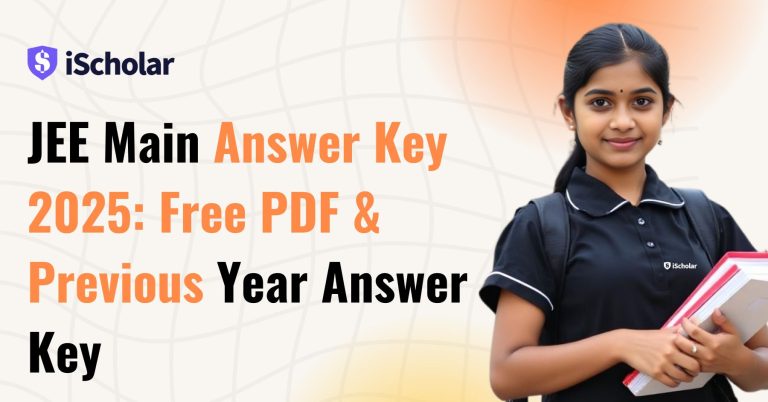JEE Mains
Joint Entrance Examination – Main (JEE-Main), formerly known as the All India Engineering Entrance Examination (AIEEE), is an Indian standardized computer-based test for admission to many technical undergraduate courses in engineering, architecture, and planning across colleges in India. The exam is carried out by the National Testing Agency (NTA) for admission to B.Tech, B.Arch, etc. courses in premier technical institutes such as the National Institutes of Technology (NIT) and Indian Institutes of Information Technology (IIIT), which are based on the rank achieved in the JEE-Main. It is generally conducted twice a year. Since 2019, the JEE has been conducted fully in online mode as a computerized test.
The core committee of the NTA decides the syllabus for the 2023 examination. Every year, lakhs of aspiring candidates appear for JEE to get admission to the most prestigious institutions in India for B.Tech, B.Arch, and B.Planning courses.
For better understanding and easy preparation for JEE Mains, a student needs to know the entire exam pattern, syllabus, and topic-wise weightage. The JEE 2023 syllabus consists of topics mostly from NCERT books for 11th and 12th grade Physics, Chemistry, and Mathematics subjects. By using the JEE 2023 chapter-wise weightage of the syllabus, the students will be able to know the topics that need to be focused on and prepare for NTA JEE Main 2023 accordingly . However, there is some variation in the syllabus and weightage of JEE Main 2023.
JEE Main 2023 Exam Pattern
Paper 1: B.E/B.Tech
| Subject | Section A | Section B | Marks | |||||||||||||||||||||||||
|---|---|---|---|---|---|---|---|---|---|---|---|---|---|---|---|---|---|---|---|---|---|---|---|---|---|---|---|---|
| (Marking Scheme: +4 marks for Correct answer, -1 for incorrect, and 0 marks for Unanswered) (MCQs) | (Marking Scheme: +4 marks for Correct answer, -1 for incorrect, and 0 marks for Unanswered) (Numerical Value questions) | |||||||||||||||||||||||||||
| Number of Questions in paper | A number of questions can be attempted | Number of Questions in paper | A number of questions can be attempted | |||||||||||||||||||||||||
| Physics | 20 | 20 | 10 | 5 | 100 | |||||||||||||||||||||||
| Chemistry | 20 | 20 | 10 | 5 | 100 | |||||||||||||||||||||||
| Maths | 20 | 20 | 10 | 5 | 100 | |||||||||||||||||||||||
| Total | 90 Question | | | 75 Questions to be attempted | 300 |
Paper 2A: B.Arch
| Subject | Section A | Section B | Marks | |||||||||||||
|---|---|---|---|---|---|---|---|---|---|---|---|---|---|---|---|---|
| (Marking Scheme: +4 marks for Correct answer, -1 for incorrect, and 0 marks for Unanswered) Question Type: MCQs | (Marking Scheme: +4 marks for Correct answer, -1 for incorrect, and 0 marks for Unanswered) Question Type: Numerical Value | |||||||||||||||
| Number of Questions in paper | A number of questions can be attempted | Number of Questions in paper | A number of questions can be attempted | |||||||||||||
| Maths | 20 | 20 | 10 | 5 | 100 | |||||||||||
| Aptitude | 50 | 50 | 0 | 0 | 200 | |||||||||||
| Drawing | 2 | 2 | 0 | 0 | 100 | |||||||||||
| Total | 82 Question | | | 77 Questions to be attempted | 400 |
Paper 2B: B.Planning
| Subject | Section A | Section B | Marks | |||||||||
|---|---|---|---|---|---|---|---|---|---|---|---|---|
| (MarkingScheme: Correct +4 , Incorrect -1, Unanswered : 0) QuestionType: MCQs | (Marking Scheme: Correct +4, Incorrect -1,Unanswered: 0) Question Type: Numerical Value | |||||||||||
| Number of Questions in paper | Number of questions to be attempted | Number of Questions in paper | Number of questions to be attempted | |||||||||
| Maths | 20 | 20 | 10 | 5 | 100 | |||||||
| Aptitude | 50 | 50 | 0 | 0 | 200 | |||||||
| Planning Based | 25 | 25 | 0 | 0 | 100 | |||||||
| Total | 105 Question | | | 100 Questions to be attempted | 400 |
JEE Mains Syllabus with Weightage
JEE Main Physics Chapter-wise Weightage
Candidates can refer to these set of topics for the preparation of JEE Main 2023 Syllabus of Physics:
| Sr.No | Unit | No. of Questions | Total marks | Marks weightage |
| 1 | Units and Dimensions | 1 | 4 | 3.33% |
| 2 | Electric Charges and Fields | 1 | 4 | 3.33% |
| 3 | Kinematics | 2 | 8 | 6.67% |
| 4 | Electric Potential and Capacitance | 1 | 4 | 3.33% |
| 5 | Laws of Motion | 1 | 4 | 3.33% |
| 6 | Moving Charges and Magnetism | 1 | 4 | 3.33% |
| 7 | Work, Energy, and Power | 2 | 8 | 6.67% |
| 8 | Magnetism and Matter | 0 | 0 | 0 |
| 9 | Rotational Motion | 1 | 4 | 3.33% |
| 10 | Electromagnetic Waves and Communication Systems | 1 | 4 | 3.33% |
| 11 | Gravity | 1 | 4 | 3.33% |
| 12 | Current Electricity | 2 | 8 | 6.67% |
| 13 | Mechanics of Solids and Fluids | 2 | 8 | 6.67% |
| 14 | Electromagnetic Induction | 1 | 4 | 3.33% |
| 15 | Oscillations | 2 | 8 | 6.67% |
| 16 | Alternative current | 1 | 4 | 3.33% |
| 17 | Waves | 1 | 4 | 3.33% |
| 18 | Semiconductors | 1 | 4 | 3.33% |
| 19 | Thermal properties | 1 | 4 | 3.33% |
| 20 | Ray Optics | 1 | 4 | 3.33% |
| 21 | Thermodynamics | 2 | 8 | 6.67% |
| 22 | Wave Optics | 1 | 4 | 3.33% |
| 23 | Kinetic theory of gases | 1 | 4 | 3.33% |
| 24 | Dual nature of radiation | 1 | 4 | 3.33% |
| 25 | Atoms and Nuclei | 1 | 4 | 3.33% |
JEE Main Chemistry Chapter-wise Weightage
Given below are some topics for the preparation of JEE Main 2023 syllabus of Chemistry (Physical, Organic, and Inorganic) that the candidates can refer to:
| Sr.No | Unit | No. of Questions | Total marks | Marks Weightage |
| 1 | Some basic concepts of Chemistry | 1 | 4 | 3.33% |
| 2 | Structure of Atom | 1 | 4 | 3.33% |
| 3 | The Solid state | 0-1 | 0-4 | 0-3.33% |
| 4 | Solutions | 1 | 4 | 3.33% |
| 5 | Electrochemistry | 1 | 4 | 3.33% |
| 6 | Classification of Elements and Periodicity in Properties | 2 | 8 | 6.67% |
| 7 | Chemical Bonding and Molecular Structure | 1 | 4 | 3.33% |
| 8 | Chemical Kinetics | 1 | 4 | 3.33% |
| 9 | States of Matter(Gases and Liquid) | 0-1 | 0-4 | 0-3.33% |
| 10 | Surface Chemistry | 1 | 4 | 3.33% |
| 11 | Thermodynamics | 1 | 4 | 3.33% |
| 12 | General Principles and Processes of Isolation | 1 | 4 | 3.33% |
| 13 | Equilibrium | 1 | 4 | 3.33% |
| 14 | The p-block Elements | 1 | 4 | 3.33% |
| 15 | Redox Reactions | 1 | 4 | 3.33% |
| 16 | The d- and f- block elements | 1 | 4 | 3.33% |
| 17 | Hydrogen | 1 | 4 | 3.33% |
| 18 | Coordination compounds | 1 | 4 | 3.33% |
| 19 | The s-block elements | 1 | 4 | 3.33% |
| 20 | Haloalkanes and Haloarenes | 1 | 4 | 3.33% |
| 21 | The p-block elements | 1 | 4 | 3.33% |
| 22 | Alcohols, Phenols, and Ethers | 1 | 4 | 3.33% |
| 23 | Organic Chemistry-Basic principles and Techniques | 1 | 4 | 3.33% |
| 24 | Aldehydes, Ketones, and Carboxylic Acids | 1 | 4 | 3.33% |
| 25 | Hydrocarbons | 1 | 4 | 3.33% |
| 26 | Amines | 1 | 4 | 3.33% |
| 27 | Environmental chemistry | 1 | 4 | 3.33% |
| 28 | Biomolecules | 1 | 4 | 3.33% |
| 29 | Polymers | 1 | 4 | 3.33% |
| 30 | Chemistry in Everyday Life | 1 | 4 | 3.33% |
JEE Main Mathematics Chapter-wise Weightage
The mathematics syllabus for B.Arch and B.Planning will remain the same as that for B.Tech (Mathematics).
Candidates can refer to the following set of topics to prepare for JEE Main 2023 syllabus for mathematics:
| Sr.No | Unit | No. of Questions | Total marks | Marks Weightage |
| 1 | Coordinate Geometry | 5 | 20 | 16.67% |
| 2 | Limits, continuity, and Differentiability | 3 | 12 | 10% |
| 3 | Integral Calculus | 3 | 12 | 10% |
| 4 | Complex numbers and Quadratic Equation | 2 | 8 | 6.67% |
| 5 | Matrices and determinants | 2 | 8 | 6.67% |
| 6 | Statistics and Probability | 2 | 8 | 6.67% |
| 7 | Three-dimensional geometry | 2 | 8 | 6.67% |
| 8 | Vector Algebra | 2 | 8 | 6.67% |
| 9 | sets, relations, and function | 1 | 4 | 3.33% |
| 10 | Permutation and Combination | 1 | 4 | 3.33% |
| 11 | Binomial theorem and its Application | 1 | 4 | 3.33% |
| 12 | Sequences and Series | 1 | 4 | 3.33% |
| 13 | Trigonometry | 1 | 4 | 3.33% |
| 14 | Mathematical Reasoning | 1 | 4 | 3.33% |
| 15 | Differential Equation | 1 | 4 | 3.33% |
| 16 | Statistics and Dynamics | 1 | 4 | 3.33% |
| 17 | Differential Calculus | 1 | 4 | 3.33% |
Which Subject Has the Highest Weightage in JEE?
As per the NTA, JEE Mains 2023 syllabus has topics from physics, chemistry, and mathematics from 11th class and 12th class. In JEE Mains examination, every section has an equal weightage of 33.3%.
In the JEE Mains examination, according to experts, chemistry is said to be the highest scoring subject, and this subject comprises 10-easy level questions, 11 medium- level questions, and 4 hard-level questions. Chemistry is the most scoring subject, with the average score being more than 35 marks; mathematics, on the other hand, is the most difficult to score, averaging a little over 25.
What Are the Important Chapters for JEE Mains 2023?
For an examination like JEE Mains, aspirants always look for ways to score more marks and grab a seat in the top engineering institutions. One of the basic questions students often have during exam preparation is about important topics and chapters for JEE Main 2023.
| Subject | Most Important Chapters of JEE Main 2023 |
| Physics | 1. Rotational Motion 2. Thermodynamics 3. SHM 4. Electrostatics 5. Magnetism 6. Optics 7. Modern Physics |
| Mathematics | 1. Complex Number 2. Conic Section 3. Circle 4. Calculus 5. Vector & 3D 6. Probability 7. Trigonometric Equation 8. Properties of Triangles 9. Quadratic Equation 10. Sequence and Series 11. Permutations and combination |
| Chemistry | 1. Chemical bonding 2. Electrochemistry 3. Coordination compound 4. Salt analysis 5. Ionic equilibrium 6. Thermodynamics & thermochemistry 7. Aldehydes and ketones 8. Aromatic hydrocarbons 9. GOC isomerism 10. Liquid solutions 11. Alkyl halides and aryl halides |

FAQ: JEE 2023 Syllabus with Weightage
1. Is Ncert enough for inorganic chemistry?
NCERT books are considered the best when it comes to the preparation of JEE Mains and JEE Advance. A lot of questions come directly from NCERT books. However, for other parts of chemistry, such as Physical chemistry, students can refer to other learning materials and books specially created for JEE preparation.
2. Which subject is very important in IIT?
In JEE, all three subjects are given equal importance as they have an equal weightage of 33.33%. So students are expected to give proper time for preparation for all subjects: physics, chemistry, and maths.
3. Is the 2023 JEE syllabus reduced?
The JEE 2023 syllabus consists of chapters and topics from classes 11 and 12 in physics, chemistry, and math that students must cover. However, JEE syllabus 2023 is the same as the previous year, and there are no changes made or no reductions made in the syllabus.
Conclusion:
This article can help students get an overview of JEE Mains exam pattern, syllabus, and weightage. Paper 1 is for students who wish to take admission in B.E or B.Tech courses. Paper 2 is for students who want to take B.Plan or B.Arch courses. Understanding the syllabus is an important factor before starting to prepare for JEE Mains 2023.





